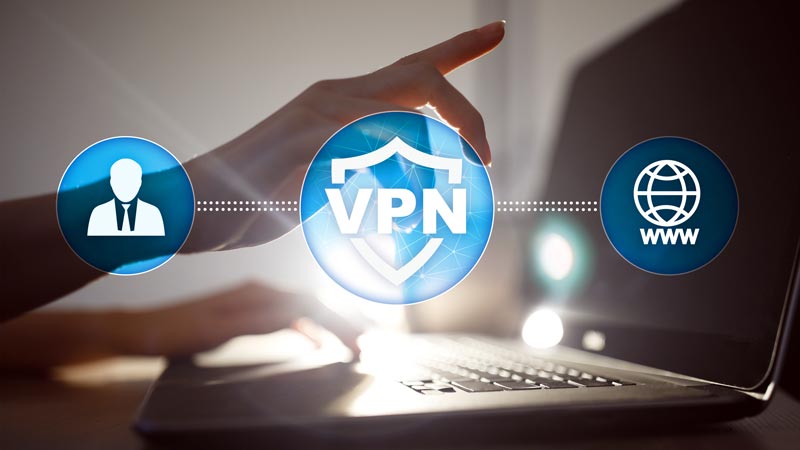What is a VPN and Why Might You Need One?
If you’ve had to access company files or data when you aren’t in the office, you may have used a virtual private network (VPN). VPNs allow you to connect to your organization’s network remotely and securely, providing a two-way interface between you and the information being accessed.
You can think of it as a secret underground tunnel that only you and the network you are connecting to can access. Rather than letting an employee have direct access to a company server, which means anyone sharing the same internet connection potentially has that access, the VPN acts as an encrypted safety gate where the information is retrieved.
Why Would You Use a VPN?
Because VPNs allow you to connect to a specific network from anywhere in the world, businesses can use VPNs so their remote employees can access company files and data without sacrificing the security of that information.
This is especially true for those employees who travel for work and might have to connect to public Wi-Fi networks in airports or hotels. A VPN will ensure the connection is encrypted and secure, keeping others from accessing your company’s data.
A VPN also allows a business to restrict access to certain departments or individuals. It’s similar to why businesses shouldn’t allow local administrator access; the more employees who have master key access, the more master keys there are for an attacker to steal. VPNs improve security, but they aren’t foolproof.
What Are Some Cons of Using a VPN?
While VPNs do offer a secure connection that allows remote network access, they do come with a few cons.
Another login to remember: To utilize VPN software, you generally need to remember another username and password combination or use two-factor authentication. Some people might get fatigued from having to remember another password on top of all the other necessary passwords needed for day-to-day work.
Service disruptions: VPN services can experience or network connectivity problems, which can lead to loss of access or interrupted workflows. And due to the technical nature of setting up and maintaining a VPN, any disruption generally will require a call to your IT team’s support desk.
Slower internet speeds: Because of the extra encryption processes VPNs offer, it can lead to slower internet speeds compared to direct connections. Security is more important from our perspective, but your employees may get frustrated when it impacts their workflow.
With a VPN, the business has complete control over who can access files and data. With cloud storage, you’re trusting a third party’s security measures are sufficient. Some businesses feel more comfortable with that control, especially if the data is extremely sensitive.
Why Do Businesses Like VPNs?
While cloud storage can be just as secure if not even more secure, there are a few reasons why some businesses still like to use VPNs.
Distrust in the cloud: Whether warranted or not, some people have a general distrust for putting their sensitive data in the cloud. It’s the same reason why some people opt to keep their money out of banks. There’s a chance, albeit very small, the bank will suffer major losses on investments and won’t have your money. The same is true for the cloud. The security protocols generally are top notch, but nothing is ever 100% secure.
Access control: With a VPN, the business has complete control over who can access files and data. With cloud storage, you’re trusting a third party’s security measures are sufficient. Some businesses feel more comfortable with that control, especially if the data is extremely sensitive.
Cost: Sometimes it’s more cost-effective to use a VPN rather than cloud storage. Depending on how much data you need to store, it might make more sense for your company to use a VPN service.
Ultimately, whether you decide to use a VPN will depend on several organizational factors, including level of control, cost and amount of data. We can help you decide if a VPN is right for your company.
Looking to Use a VPN Service?
Contact us here to see how we can help keep your business running smoothly while increasing productivity, security and profitability.











